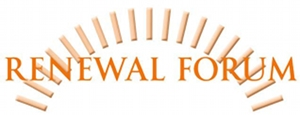The state agency that should be leading the fight against the commercial sexual exploitation of children – Child Protective Services (CPS) – is, in most states, either sitting on the sidelines or very limited in its capacity to respond, according to a new report “Falling Through the Cracks: Rethinking Child Protective Services’ Response to Victims of Child Sex Trafficking in the U.S.” prepared by the Renewal Forum, a non-profit organization dedicated to promoting respect for human dignity, with the assistance of Paul Hastings, a leading global law firm. The report was released today on the heels of National Human Trafficking Awareness Day, which is observed annually in the U.S. on January 11 to raise awareness of sexual slavery and human trafficking.
Although CPS workers are the best qualified to navigate the process of interacting with traumatized children, the report reveals that in 24 states CPS agencies are legally excluded from assisting children who are victims of commercial sexual exploitation. The report provides a state-by-state review and analysis of CPS mandates and relevant authorizing legislation. It found that mandates for CPS agencies and statutory definitions of abuse are often written in a way that restricts the reach of CPS services only to children being abused by a parent or guardian, with the appalling consequence that CPS is not authorized to help children who have suffered abuse at the hands of a trafficker.
“The sex trafficking of children in the United States is more prevalent than most realize, and the failure of Child Protective Services Agencies to intervene is very troubling,” said Steven Wagner, President of the Renewal Forum. “Lawmakers can remove the obstacles that stand in the way of helping these exploited children by changing a few key aspects of the Child Protective Services mandate and related statutory provisions so as to include victims of sex trafficking. We urge them to act quickly to empower state child welfare agencies to come to the aid of child victims emerging from the trauma of trafficking,” he added
“Paul Hastings was pleased to be able to contribute to the development of this impactful report through the undertaking of important legal research,” said Rebecca Eggleston, an associate at Paul Hastings. “It is a tragedy that the commercial sexual exploitation of children is such a prevalent problem in the U.S., but this report helps to highlight that there is a real opportunity to help the children who are being victimized. We hope the information in this report will spur changes that will allow these children to qualify for the protective services they desperately need to help them escape and recover from their abuse.”
In an effort to help the roughly 250,000 children victimized annually by commercial sexual exploitation, the Renewal Forum and Paul Hastings worked together to prepare a comprehensive state-by-state analysis that evaluates the ability of each state’s CPS system to serve victims of child trafficking. The data included all fifty U.S. states, as well as the District of Columbia and Puerto Rico, with each state assigned a letter grade by the Renewal Forum based on the strength of its individual processes and the ability of CPS to respond to child victims of trafficking.
Paul Hastings lawyers, on a pro bono basis, researched the mission/mandate of each state’s CPS agency and the relevant authorizing legislation, and the Renewal Forum reviewed and analyzed that data to determine whether juvenile victims of commercial sexual exploitation fall within the population served by CPS. Based on the results of this research and analysis, the Renewal Forum assigned each state a letter grade.
Key conclusions of the report include:
- Twenty-four states received a failing grade with respect to the ability of their CPS agency to respond to trafficked children, and six more received a “D,” while only nine states received a grade of “A,” four received a “B” and nine received a “C.”
- Because CPS agencies are constrained by current legislation, every year nearly a thousand commercially sexually exploited children who are actually discovered end up in the hands of law enforcement, rather than being placed with CPS.
- The alternative to a CPS response often involves the child being declared to be a “child in need of supervision” (CHINS) by a judge; the CHINS process brings the child within the jurisdiction of the juvenile court and may treat the child as a criminal rather than a victim, sometimes even resulting in the child being sent to juvenile detention.
- In 24 states reviewed, only a child’s parent or guardian may initiate the CHINS process, preventing others who are in a position to help the child – teachers, social workers, friends or neighbors – from starting the process of obtaining services for the child.
Among other recommendations, the report urges states to:
- Change CPS mandates to include the provision of services for victims of sex trafficking;
- Amend certain statutory definitions to include trafficking in the definition of abuse and include those who perpetrate or allow trafficking among the individuals responsible for the welfare of a child, such that children abused or subjected to abuse by a trafficker could receive services; and
- Align their criminal trafficking statutes with the current federal statute, which does not require a showing of force, fraud or coercion to find that a minor has been trafficked, and enact a safe harbor provision that protects child victims of sex trafficking by making them immune from prosecution for prostitution.
The entire report can be viewed here.
Paul Hastings LLP is a leading global law firm with offices in Asia, Europe, and the United States. We provide innovative legal solutions to financial institutions and Fortune 500 companies. Please visit www.paulhastings.com for more information.
|



 This comprehensive paper looks at state laws on human trafficking and gives each state a letter grade based on four categories; criminalization, protecting victims, holistic help, and age of a minor.
This comprehensive paper looks at state laws on human trafficking and gives each state a letter grade based on four categories; criminalization, protecting victims, holistic help, and age of a minor.